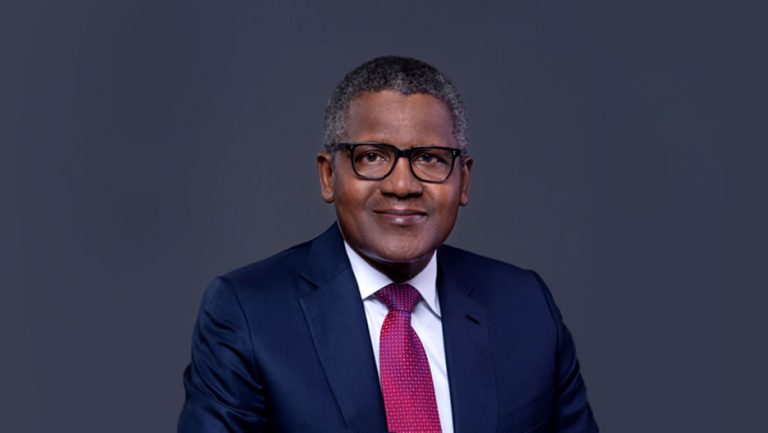Aliko Dangote, Africa’s richest person and Nigerian business magnate, is looking to raise billions of dollars to increase production at his $20 billion Dangote Refinery, located on the outskirts of Lagos, with a goal of reaching a capacity of 650,000 barrels per day (bpd), according to a report by Financial Times.
The industrialist is in negotiations with commercial banks, development institutions, oil traders, and other industry stakeholders to secure funds for the purchase of crude oil, which will be processed into refined products. The Africa Finance Corporation (AFC), a Nigerian-based pan-African development lender and an existing investor in the refinery, is also involved in the discussions, the report revealed. AFC had previously led a funding round in December to support the refinery’s initial startup.
Dangote Industries has already sourced crude from countries like the US and Brazil and is currently in talks with African oil suppliers, including Libya and Angola, to meet the refinery’s growing demand, according to Devakumar Edwin, a senior executive at Dangote Industries.
To reach its full capacity of 650,000 bpd, Dangote needs additional crude supplies. The refinery is currently operating at 420,000 bpd and has been labeled a “game changer” for Nigeria’s oil industry by Dangote himself. He previously stated that the refinery would reach full capacity by Q2 2024, although earlier projections have been delayed.
Nigeria, Africa’s largest oil producer, has long struggled with a reliance on imported refined products due to insufficient local refining capacity. Dangote’s refinery, which began producing jet fuel and naphtha earlier this year, and petrol in September, is seen as a potential solution to this long-standing issue.
Despite its promising future, securing a steady supply of crude has been a challenge. Reports indicate that it would cost approximately $2 billion every 90 days to ensure a reliable supply of 300,000 bpd of crude. Furthermore, potential investors have raised concerns over Dangote’s ability to maintain consistent crude supplies, with one banker involved in the talks noting the financial risks posed by Nigeria’s volatile currency, the naira.
In a bid to resolve these challenges, Dangote met with President Bola Tinubu and Mele Kyari, the head of the Nigerian National Petroleum Corporation (NNPC), to discuss crude supply arrangements. NNPC has committed to supplying 365,000 bpd of crude to the refinery, which will be paid for in naira.
NNPC holds a 7.2% stake in the refinery, which was diluted from 20% after failing to meet its financial obligations. This has raised doubts about NNPC’s ability to supply the crude required, especially as the corporation has sold significant quantities of oil on forward contracts. If NNPC fails to meet its supply commitments, Dangote would need to source the additional crude, estimated at 185,000 bpd, from foreign markets.
Once fully operational, Dangote’s refinery is projected to meet Nigeria’s entire petrol demand, which is estimated at 30 to 35 million liters per day. Some critics, however, worry that Dangote’s dominance in the cement sector could be mirrored in the oil industry, creating a de facto monopoly.
Industry experts, including those from the Knightsbridge Strategic Group (KSG), a geopolitical intelligence firm, estimate that Dangote’s refinery will reach full capacity by Q2 2025, rather than the previously expected 2024 timeline. KSG projects that, once fully operational, the refinery will reduce local fuel costs and increase competition in Europe’s fuel market, especially as Nigeria becomes a new exporter of refined oil.
However, KSG also warned that persistent crude shortages and a weak naira could continue to hinder the refinery’s progress, leading to financial difficulties due to the refinery’s massive debt commitments. If crude supply issues are not resolved within the next four to six months, the refinery could face prolonged delays in reaching full capacity and further financial strain.
The challenges underscore the complexity of scaling up such a large and ambitious project in the face of logistical, financial, and geopolitical hurdles. Nonetheless, Dangote’s refinery remains a critical piece of Nigeria’s long-term strategy to end its dependence on imported refined products and boost its economic standing in global energy markets.

